Lunar Base
Card game time! I backed Lunar Base on Kickstarter, and having played several rounds since it arrived a while ago, I'd like to share my impressions.
The box comes with a small extension - some extra cards - for Kickstarter backers. What I particularly like about the box is that it has a magnetic lid that snaps nicely and firmly closes the box. It's not really necessary to do that, but gives a certain sense of quality.
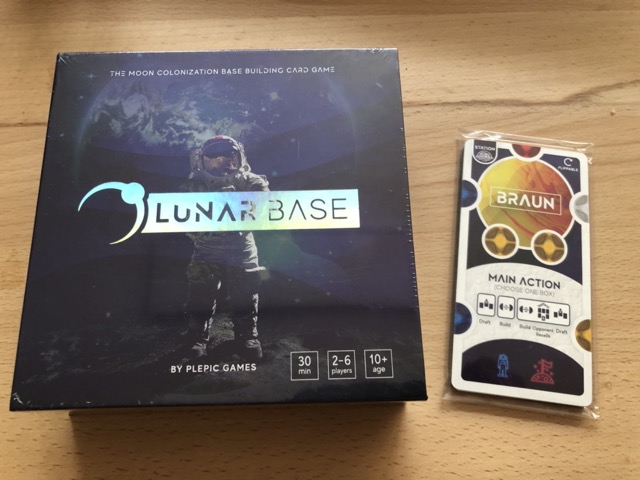

The contents are very well done. The neat and well-written rulebook includes some example moves, and is a quick read. The rules are simple and can be learned in 10-20 minutes by reading the book or having them explained. There are six circular credit markers, and lots of cards.
The cards are used to build a base on the moon. Some of the cards are agents - one-time actions - but the majority is modules from which the base is assembled. The modules connect at the coloured semi-circles on their edges. The colours must match for a connection to be valid. Grey is a wildcard - any colour connects with it. Any complete coloured circle is called an "orb". Playing an agent or building a module can have a cost, which is expressed in orbs. Orbs not found in a player's base can be substituted by spending credits.
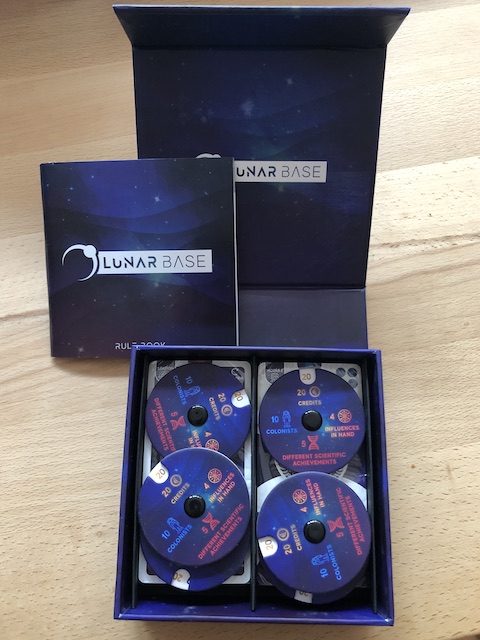
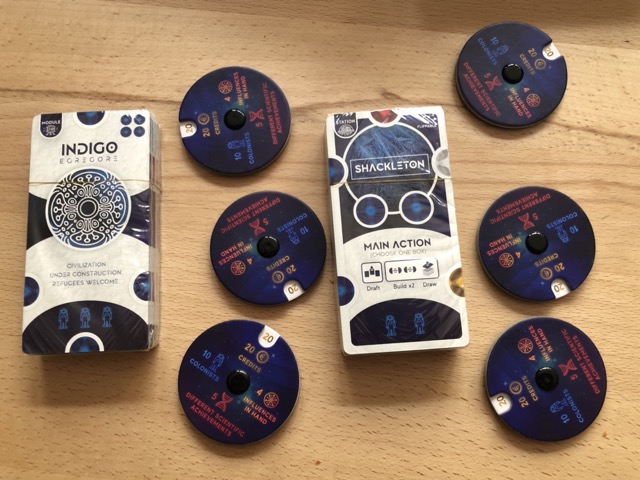
Each player is dealt three cards and a station module (the heart of the player's base). Furthermore, there's a supply of cards that's drawn from the hidden pile. In any move, a player can first play an agent, and then pick one action from any of their modules. Actions include drafting cards from the supply, drawing from the hidden pile, discarding cards, building modules, selling supply parts, and also stealing credits or modules from other players. Some modules, when built, have immediate effects. Thus, the action chosen by a player can spawn sub-actions, so that complex moves are a possibility.
The final part of a player's move is to re-supply - this happens if the supply in the middle of the table is drained. New cards are drawn from the hidden pile, and players earn credits for orbs.
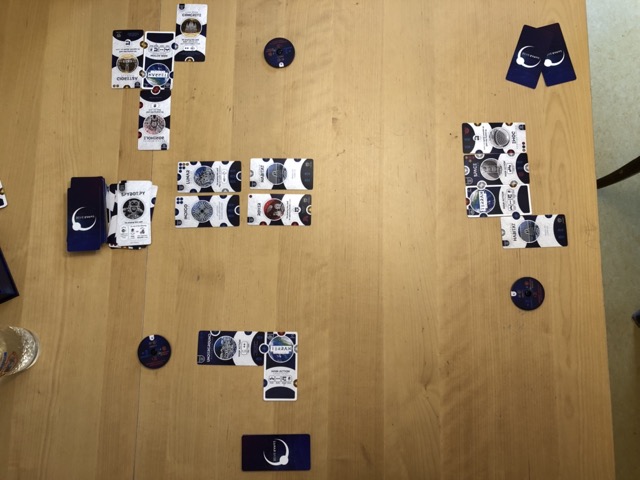
There are four winning conditions: you earn enough credits, you have enough colonists (blue figures on the modules), you have enough different scientific advancements (red symbols), or you have enough influence. (The influence cards aren't shown here, we haven't played with those yet as they add complexity and we want to understand the basics first.)
Here's a winning base: it has both 10 colonists and 5 different scientific advancements, so two winning conditions are met.
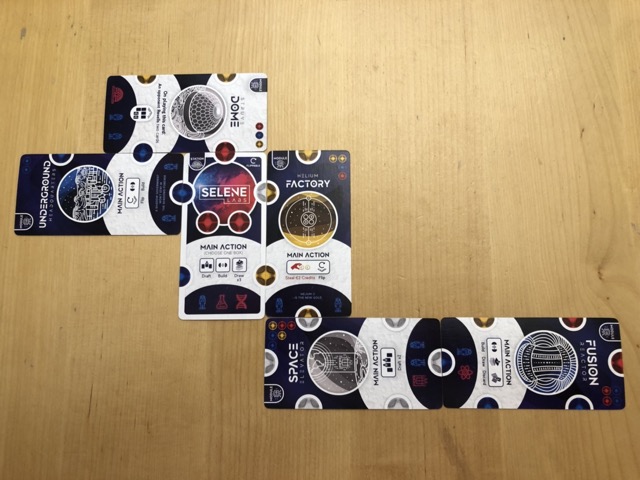
The game is fast-paced and fun (make sure to read the tiny nerdy descriptions on the cards). The fun increases with the number of players. Very warm recommendation!
Tags: games